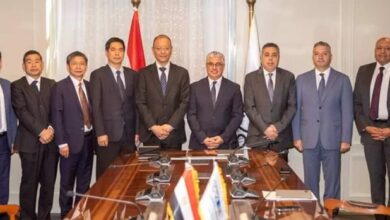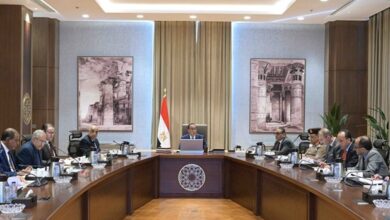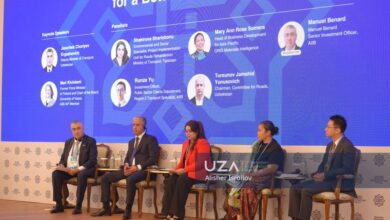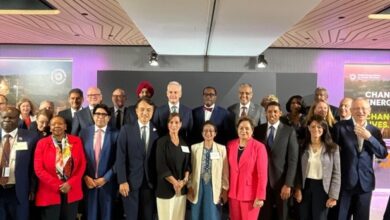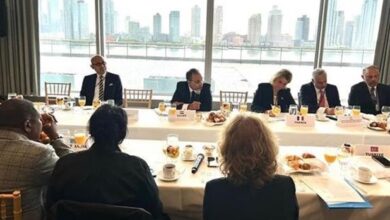H.E. Dr. Rania A. Al-Mashat, Minister of International Cooperation, met with UNESCO Regional Director to Discuss Joint Cooperation in Light of Future Projects & the “Shabab Balad” initiative
By: Amal Elwy
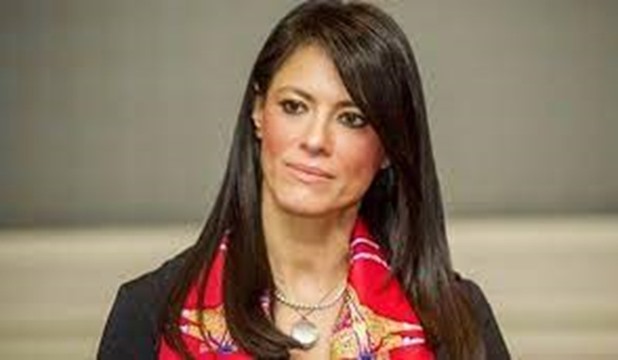
The Minister of International Cooperation H.E Dr. Rania A. Al-Mashat met with Nuria Sanz, Director of UNESCO’s Regional Bureau for Science in the Arab States, to discuss joint cooperation in light of efforts by the Ministry of International Cooperation to strengthen relations with multilateral and bilateral development partners and United Nations organizations, under the umbrella of the United Nations Sustainable Development Cooperation Framework (UNSDCF 2023- 2027) between Egypt and the UN.
During the meeting, Al-Mashat congratulated Sanz on taking up her new position as Director of UNESCO’s Regional Bureau for Science in the Arab States, which is based in Egypt, noting that the Ministry of International Cooperation is looking to strengthen the cooperation frameworks between the United Nations Educational, Scientific and Cultural Organization (UNESCO), and national entities to strengthen heritage conservation efforts, educational services and support researchers and scientists.
The Minister of International Cooperation pointed out that the relationship with UNESCO is long standing, dating back 75 years as Egypt was one of the first countries to ratify its establishment. H.E. also applauded for the participation by UNESCO in COP27 Egypt where it organized more than 20 side events with the aim of discussing the achievement of climate goals.
H.E. discussed with the UNESCO officials the events related to the signing of the UNSDCF 2023- 2027 between Egypt and the UN. This will include the presence of all national entities, especially in light of the role played by the organization in the implementation of many projects including enhancing the efficiency of the Nubian Museum and the establishment of the Community Learning Center, and the current efforts to develop the village of Qarna in the western part of Luxor through the implementation of the second and third phases of the project in cooperation with UNESCO.
Al-Mashat also discussed with the UNESCO the launch of the Egyptian version of the United Nations Youth Initiative under the title “Shabab Balad”, and the convening of the Advisory Board during COP27 chaired by the Ministry of International Cooperation and the Office of the UN Resident Coordinator, noting that the five high-level committees for the initiative are being formed in the areas of education, employment, entrepreneurship, digital transformation, training, skills and youth empowerment.
H.E stated that the initiative represents a new tool for cooperation between the Government of Egypt and UN organizations in relation to youth empowerment and skills development.
Regarding the Damietta Governorate’s receipt of the UNESCO Cities of Learning Award for 2021, Al-Mashat discussed the need to expand the initiatives implemented in Damietta Governorate, especially at the level of education and vocational training through the Youth of the Country Initiative, and explore various areas of cooperation.
It is worth mentioning that the Ministry of International Cooperation, working with the Office of the United Nations Resident Coordinator in Egypt, is strengthening preparations for the launch of the UNSDCF 2023- 2027 between Egypt and the UN, as well as preparatory actions related to the Joint Steering Committee and the Technical Outcomes Groups.
The UNSDCF sets out 5 priorities to be achieved by 2027, namely enhancing human capital through equal access to superior services, social protection and social justice for all, promoting inclusive sustainable economic development driven by productivity growth, decent jobs, integrating the informal economy, strengthening resilience to climate change and efficient management of natural resources in a sustainable environment, achieving inclusive equity in safe and equitable access to information, in line with a governance framework characterized by transparency, accountability, efficiency, interaction, and inclusive participation of women and girls, and promoting political and economic empowerment.

